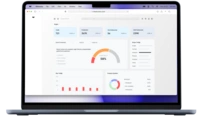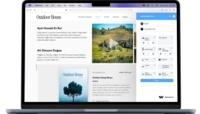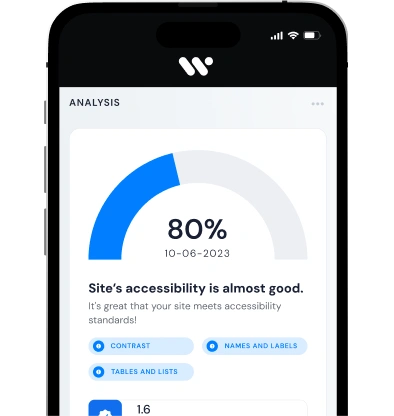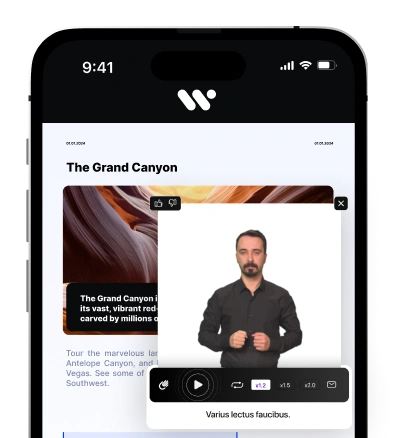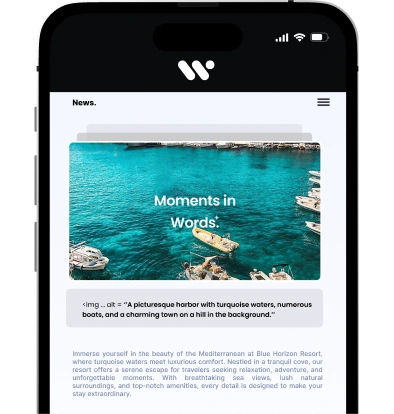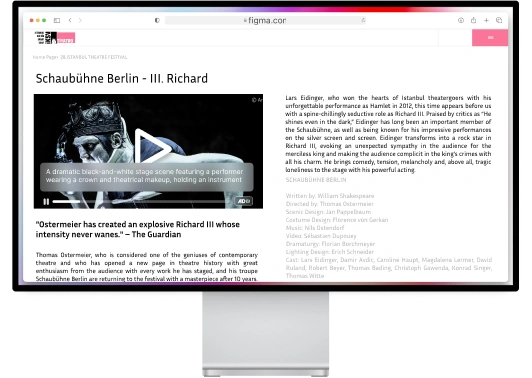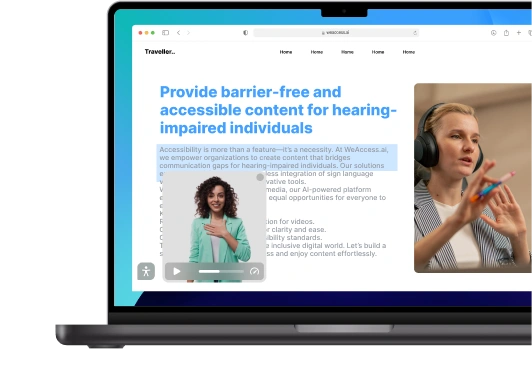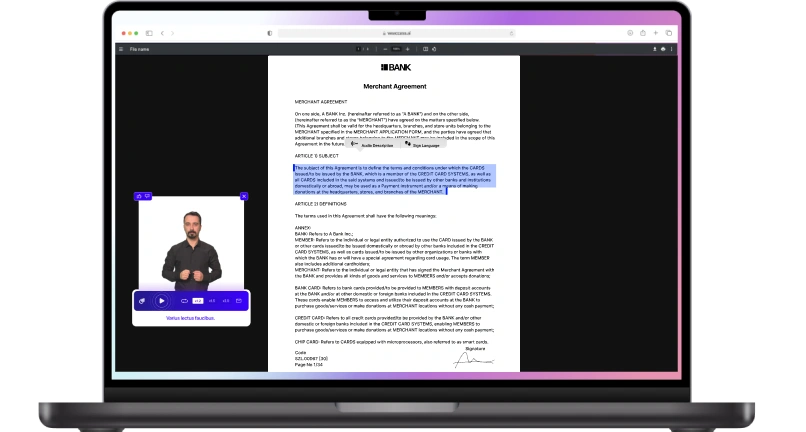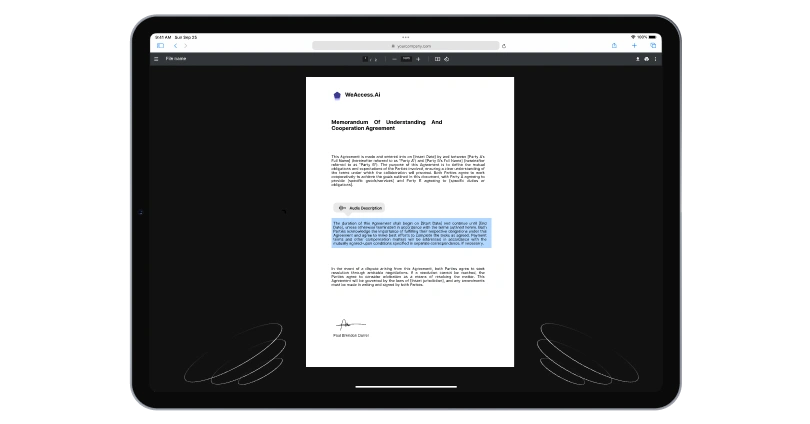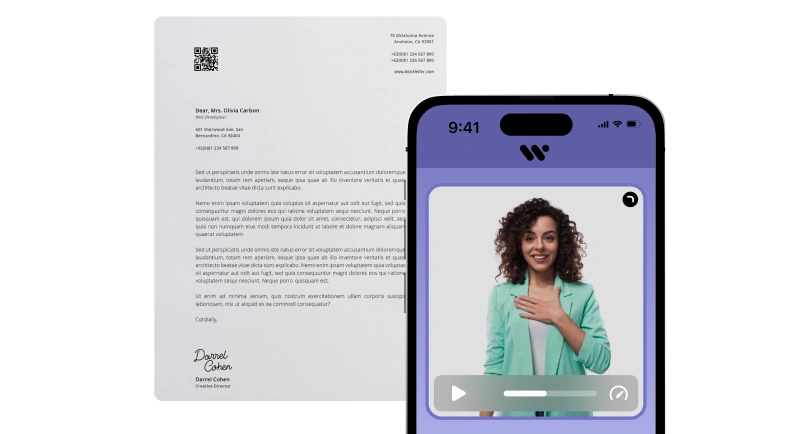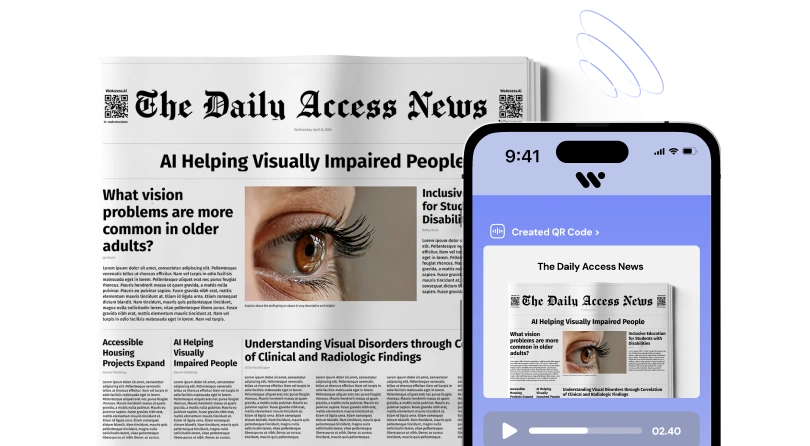German Web Accessibility: Laws, Standards, and Compliance Guide
German web accessibility is enforced through comprehensive legislation such as the Behindertengleichstellungsgesetz (BGG) and the Barrierefreie-Informationstechnik-Verordnung (BITV 2.0), mandating adherence to WCAG 2.1 Level AA and EN 301 549 standards to guarantee equal digital access for people with disabilities (source: federal government portals). The updated Barrierefreiheitsstärkungsgesetz (BFSG) sets strict compliance deadlines, requiring public institutions to implement features like keyboard navigation, semantic HTML, alternative text, and clear color contrast (source: EU accessibility directives).
What Is Web Accessibility in Germany?
German web accessibility ensures that all digital content and accessible ICT (Information and Communication Technology) meet legal and technical requirements to be usable by everyone, including people with disabilities. Governed by laws such as the Behindertengleichstellungsgesetz (BGG) and BITV 2.0, Germany mandates compliance with WCAG 2.1 Level AA and EN 301 549 standards. This involves providing features like keyboard navigation, alternative text for images, and clear color contrast to guarantee equal access. Public institutions must also publish detailed accessibility statements and establish feedback mechanisms to continuously improve accessibility
Why Is Accessibility Important for Websites in Germany?
Accessibility legislation in Germany mandates that public sector accessibility ensures all citizens, including those with disabilities, can access government websites and digital services without barriers. Under the European Accessibility Act (EAA), private sector companies also have growing obligations to comply with ICT accessibility standards, expanding the compliance scope beyond just public-sector websites. Meeting these requirements not only fulfills legal duties but also promotes inclusivity, improves user experience, and helps organizations avoid penalties. Thus, accessibility in public websites and private digital services is essential for legal compliance and social responsibility
What Is the Current State of Digital Accessibility in Germany?
As of mid-2025, Germany is actively enhancing its digital accessibility landscape through legislative measures and increased enforcement. The Barrierefreiheitsstärkungsgesetz (BFSG), effective from June 28, 2025, mandates that both public and private sector digital services—such as websites, mobile applications, online shops, and self-service terminals—comply with EN 301 549 and WCAG 2.1 Level AA standards . This legislation extends beyond public institutions, requiring private companies to ensure their digital offerings are accessible to people with disabilities.
Despite these advancements, challenges remain. A study by Capterra indicates that 56% of German companies are not yet prepared for the European Accessibility Act, even though 80% acknowledge the importance of inclusive web design . Furthermore, an evaluation of over 11,000 municipal websites revealed that approximately 770 municipalities are not digitally accessible for people with disabilities
To address these issues, Germany has established the Marktüberwachungsstelle der Länder für die Barrierefreiheit von Produkten und Dienstleistungen (MLBF), a central authority responsible for monitoring compliance with digital accessibility standards across various sectors, including e-commerce, banking, and transportation . This proactive approach aims to foster a more inclusive digital environment, ensuring that all individuals, regardless of disabilities, can access and benefit from digital services
What Are the Key Accessibility Laws in Germany?
Germany’s accessibility regulations are founded on the Behindertengleichstellungsgesetz (BGG), also called the German Disability Equality Act, which guarantees equal access rights for people with disabilities (source: The Barrierefreie Informationstechnik-Verordnung (BITV) and its updated version, BITV 2.0, set precise technical standards aligned with WCAG 2.1 Level AA for accessible ICT
The Barrierefreiheitsstärkungsgesetz (BFSG), or German Accessibility Reinforcement Act, broadens the scope of obligations, including public and private digital services, while ensuring stricter enforcement
The Federal ordinance of September 22, 2011 further mandates accessibility compliance for federal digital platforms. Together, these laws create a comprehensive legal framework promoting digital inclusivity across Germany.
What Is BITV (Barrierefreie Informationstechnik-Verordnung)?
The BITV (Barrierefreie Informationstechnik-Verordnung) is Germany’s federal ordinance that sets binding requirements for digital accessibility compliance of public sector websites and IT services.
The updated BITV 2.0 version harmonizes with WCAG 2.1 Level AA standards, specifying detailed technical and organizational measures to ensure barrier-free digital access As a core part of Germany’s accessibility regulations, BITV supports the country’s goal of creating an inclusive digital landscape by making ICT accessible to all users, especially those with disabilities
What Is the BFSG (Barrierefreiheitsstärkungsgesetz)?
The Barrierefreiheitsstärkungsgesetz (BFSG), or German Accessibility Reinforcement Act, is a pivotal piece of accessibility legislation set to take effect on June 28, 2025. It transposes the European Accessibility Act (EAA) into German law, aiming to enhance the accessibility of digital products and services across the country. The BFSG mandates that a wide range of digital offerings—such as websites, mobile applications, e-commerce platforms, and self-service terminals—be accessible to individuals with disabilities
To meet compliance, affected organizations must ensure their digital offerings are perceivable, operable, understandable, and robust (POUR), aligning with the Web Content Accessibility Guidelines (WCAG) 2.1 Level AA standards. Additionally, products must undergo conformity assessments and bear the CE mark, indicating compliance with accessibility requirements
How Does the BGG (Behindertengleichstellungsgesetz) Affect Accessibility?
The BGG (Behindertengleichstellungsgesetz), known as the German Disability Equality Act, establishes the legal foundation for public sector accessibility in Germany. It requires federal institutions to ensure their services, including digital platforms, are accessible to people with disabilities. The compliance scope covers not only websites but also information technology and communication tools used by public authorities. By mandating barrier-free access, the BGG promotes equal participation and helps eliminate discrimination against disabled individuals in public services
When Will Accessibility Laws Be Enforced in Germany (June 2025)?
Germany's Barrierefreiheitsstärkungsgesetz (BFSG), implementing the European Accessibility Act (EAA), comes into effect on June 28, 2025. This legislation mandates that a wide range of digital products and services—including websites, mobile applications, e-commerce platforms, ATMs, and public transport services—be accessible to individuals with disabilities. The BFSG applies to both public and private sector entities that provide digital services to consumers in Germany
How Does the European Accessibility Act Apply in Germany?
The European Accessibility Act (EAA) sets EU-wide accessibility regulations to standardize digital accessibility across member states. In Germany, the EAA is transposed into national law via the Barrierefreiheitsstärkungsgesetz (BFSG), which enforces compliance with established German accessibility standards like BITV 2.0 and WCAG 2.1 Level AA. This integration requires both public and private sectors to enhance the accessibility of websites, apps, and electronic products. By aligning with the EAA, Germany ensures that its accessibility legislation promotes equal digital access and a consistent user experience across the EU
What Is the European Accessibility Act (EAA)?
The European Accessibility Act (EAA) is an EU directive establishing common accessibility regulations to ensure that a broad range of products and services are accessible to people with disabilities. It requires compliance with standards such as EN 301 549, which aligns technical requirements for ICT accessibility across Europe. The EAA fosters accessibility alignment among member states, harmonizing laws to improve usability and inclusiveness in digital and physical environments across the EU.
What Does the EAA Require from Private Sector Businesses in Germany?
Under the European Accessibility Act (EAA), private sector businesses in Germany must meet several critical requirements to comply with ICT accessibility standards:
- Ensure accessibility of digital products and services (e.g., websites, e-commerce platforms, banking apps) in line with EN 301 549
- Adapt self-service terminals, ticket machines, and payment devices for barrier-free use
- Provide accessible customer support, including through alternative communication methods
- Include accessibility in procurement processes for ICT tools and software
- Document and demonstrate compliance through technical files and conformity declarations
- Avoid non-compliance, as failure to meet obligations can result in regulatory actions and legal consequences
How Are German Laws Aligned with the EAA?
Germany ensures European Accessibility Act alignment through the Barrierefreiheitsstärkungsgesetz (BFSG), which integrates EAA requirements into national law. This alignment enforces the use of harmonized standards like EN 301 549, ensuring that both public and private digital services comply with recognized accessibility benchmarks. German laws such as BITV 2.0 complement this framework, creating a unified approach to German accessibility standards consistent with EU-wide regulations
What Are the Technical Standards for Accessibility Compliance?
To meet accessibility compliance requirements in Germany and the EU, digital services must follow these internationally recognized technical standards:
- WCAG (Web Content Accessibility Guidelines): Developed by the W3C, these provide the global framework for accessible content
- WCAG 2.0 / WCAG 2.1 (Level AA): Required under German law (BITV 2.0) and the EU’s EAA, ensuring content is perceivable, operable, understandable, and robust
- EN 301 549: The European standard for ICT accessibility, referencing WCAG and covering software, hardware, and services
- WCAG compliance: Enforced in public and private sectors, guiding design choices like keyboard navigation, alt text, color contrast, and form labels
What Is EN 301 549 and Why Is It Important?
EN 301 549 is the official European standard that defines accessibility requirements for ICT products and services, including websites, software, and hardware. It ensures EN 301 549 conformance with the Web Content Accessibility Guidelines (WCAG) 2.1 Level AA and additional criteria for assistive technology support.
As a set of harmonized standards under EU law, it plays a central role in accessibility legislation, especially for compliance with the European Accessibility Act (EAA) in countries like Germany. It provides a measurable, uniform benchmark to assess and enforce digital accessibility across sectors
What Are the Key Website and Content Accessibility Requirements?
To comply with German accessibility standards and WCAG 2.1 Level AA, websites must implement the following essential accessibility features:
Tablo
|
Requirement |
Description |
|
Alternative Text (alt text) |
Descriptive text for images to support screen readers |
|
Color Contrast Ratio |
Minimum of 4.5:1 for normal text, 3:1 for large text to ensure readability |
|
Captions / Transcripts |
Synchronized captions for videos and transcripts for audio content |
|
Accessible Forms and Inputs |
Proper labels and instructions for all input fields |
|
Semantic HTML |
Use of proper HTML tags (e.g., <h1>, <nav>, <button>) for structure |
|
Keyboard Navigation |
All functions must be operable via keyboard without requiring a mouse |
|
ARIA Roles and Attributes |
Used to enhance accessibility when native HTML does not suffice |
|
Accessible Multimedia |
Videos and audio must offer captions, transcripts, and visual controls |
|
Accessibility Statement |
Published machine-readable accessibility statements outlining compliance |
|
Easy-to-Read Language |
Clear, simple content for users with cognitive or language impairments |
What Accessibility Features Must Be Included on Websites?
To meet WCAG 2.1 Level AA and German accessibility standards, websites must include the following features:
- Alt text: Descriptive alternative text for all informative images
- Color contrast ratio: Minimum of 4.5:1 for text to ensure readability for visually impaired users
- Captions: Synchronized captions for video content to support users with hearing impairments
- Keyboard navigation: Full website functionality must be accessible using only the keyboard
- ARIA roles and attributes: Used to enhance accessibility when native HTML is not sufficient
- Semantic HTML: Proper use of HTML tags (e.g., <header>, <nav>, <main>, <footer>) to convey content structure clearly
How Do You Make Forms and Content Accessible?
To ensure forms and content are accessible under WCAG 2.1 and German accessibility standards, follow these practices:
- Accessible forms and inputs: Use clear <label> elements linked to each input field with for and id attributes
- Labels and instructions: Provide descriptive labels, placeholders, and guidance for users to complete forms accurately
- Alternative text: Include meaningful alt text for all non-decorative images within forms or content
- Easy-to-read language: Write in plain, concise language to support users with cognitive or language challenges
What Is an Accessibility Statement and Why Is It Required?
An accessibility statement is a public declaration that outlines a website’s level of digital accessibility compliance. It includes details on supported features, known barriers, and contact options for feedback. In Germany and the EU, machine-readable accessibility statements are legally required for public sector websites under the compliance scope of WCAG 2.1 and EN 301 549. These statements promote transparency and help users understand how accessible a digital service truly
How Is Accessibility Monitored and Enforced in Germany?
Germany enforces accessibility through structured monitoring & reporting obligations under laws like BFSG and BITV 2.0. Public and private organizations must provide compliance documentation & evidence showing adherence to WCAG 2.1 and EN 301 549 standards. From June 2025, enforcement expands to include private digital services, overseen by the Market Surveillance Authority (MLBF). Non-compliance may lead to legal actions and administrative consequences, ensuring that accessibility penalties drive continuous improvements
How Can Organizations Test and Improve Accessibility?
To ensure machine-readable compliance and meet legal standards, organizations should adopt a structured accessibility approach:
- Automated accessibility scanning: Use tools like Axe, Lighthouse, or WAVE to detect code-level issues quickly
- Manual accessibility auditing: Conduct expert reviews to evaluate real user scenarios and complex interactions
- Accessibility training & role-based learning: Educate developers, designers, and content creators with targeted training
- Ongoing monitoring: Implement continuous testing workflows to maintain accessibility over time
WeAccess is an innovative solution providing digital accessibility services in Germany. It has been developed specifically for public and private sector organizations seeking to comply with German accessibility laws (BGG, BITV 2.0, BFSG). WeAccess offers automated scanning, reporting, and improvement tools to ensure that websites and digital content comply with WCAG 2.1 AA standards. It is also fully compliant with European standards such as EN 301 549 and simplifies the management of accessibility processes. As a result, it is an ideal solution for organizations seeking to meet legal requirements and enhance user experience in Germany.

